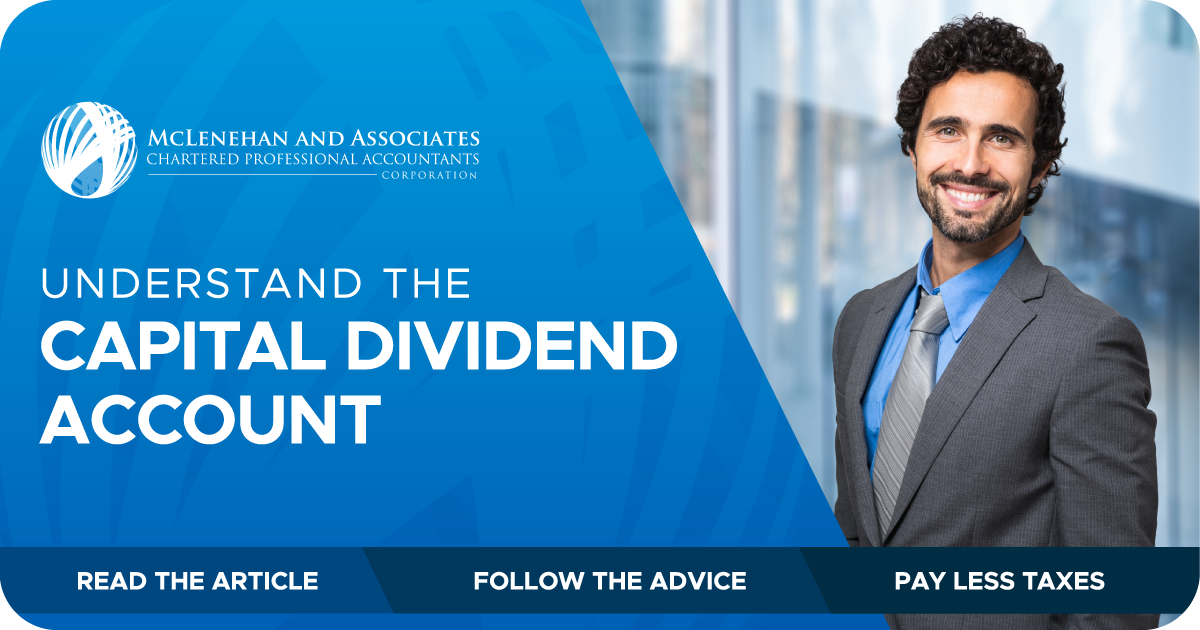Understand the Capital Dividend Account
Incorporated small business owners may be able to take tax-free cash out of their corporation through the capital dividend account.

The way a bonus is paid has a significant effect on corporate and personal after-tax income.
You are an owner-manager and you’ve just had a really good year. Profits are up significantly and you want to reward your yourself with a bonus. But how? Salary or dividends? The answer to this age-old question is not as simple as it seems. It is even possible to receive remuneration that is a combination of salary and dividends. However, because every company and its shareholders have different needs, a “one size fits all” approach to remuneration is not prudent.
Salary and dividends differ with respect to taxation. A dividend is a per-share payout of retained earnings and is therefore not an expense and thus does not reduce pre-tax income. A salary bonus differs from a dividend in that it is an expense and thus reduces pre-tax income. Corporations, trusts, charities and a wide variety of other entities can also receive dividends.
Different Tax Effects
Distributing a salary bonus effectively reduces pre-tax income by the amount paid. Thus, if a company pays out 100% of pre-tax earnings in the form of a salary bonus, the corporation may not be subject to income tax expense. On the other hand, if a company wishes to distribute the same dollar amount of earnings by declaring a dividend, the company must first pay corporate income tax. Assuming after-tax earnings of $100,000 and a tax rate of 15.5%, the cash outlay would be $118,343 (i.e., the distribution of the $100,000 of earnings in the form of a dividend bonus plus the $18,343 in income tax on those earnings in order to net $100,000 for the dividend payment).
Dividends are often cited as the best means of providing remuneration to the owner-manager since they do not attract as much personal income tax as salary. For example, a salary of $100,000 for a single individual would create a combined federal and provincial tax of $26,466 (Ontario), whereas an eligible dividend of $100,000 from an owner-managed business would generate a personal tax of $9,802; personal tax from an other than eligible dividend would be $16,693.
At first blush, an owner may be tempted to simply pay out all profits by dividend because of the significant personal tax savings. However, since dividends are paid from after-tax earnings, the combined tax in the case of an eligible dividend would amount to $28,145 ($18,343 + $9,802) and in the case of an other than eligible dividend the combined tax would be $35,036 ($18,343 + $16,693). Certainly there are other factors that come into play both on a corporate and personal level, but the example establishes that one should carefully consider the approach to be taken.
Additional Considerations
There are additional considerations that must be factored into the decision as to whether to pay dividends or salary.
An employee can receive three types of dividends.
Three Types of Dividends
A business must be aware that there are three types of dividends an employee can receive from your corporation:
Other Concerns
Eligible dividends cannot exceed the balance in the General Rate Income Pool (GRIP). Excess payments from the GRIP can result in penalties.
Talk to Mike McLenehan CPA, CGA
Given the complexity of the decision as to whether salary, dividends or a mix of both is the best way to proceed, astute owners should meet with Mike McLenehan CPA, CGA to discuss corporate and personal needs before a decision is made.
Mike McLenehan CPA, CGA understands the share structure of your company, the company’s viability, and the overall remuneration needs of the shareholders. This insight, plus knowledge of the tax regulations and the tax software that can be used to simulate various scenarios, enables Mike McLenehan CPA, CGA to assist you in making the right decisions as to the appropriate mix of salary or dividends.
Schedule a meeting with Mike McLenehan CPA, CGA by calling 204-505-3113 or emailing mike@mclenehan.com.

Incorporated small business owners may be able to take tax-free cash out of their corporation through the capital dividend account.

Canada Revenue Agency (CRA) can be difficult to deal with at the best of times. No one likes to feel as though they are at risk of being assessed a...

Buy/lease decisions are much more than a matter of taxes. Buy or lease? That is the question that arises whenever a business needs a new asset. The...